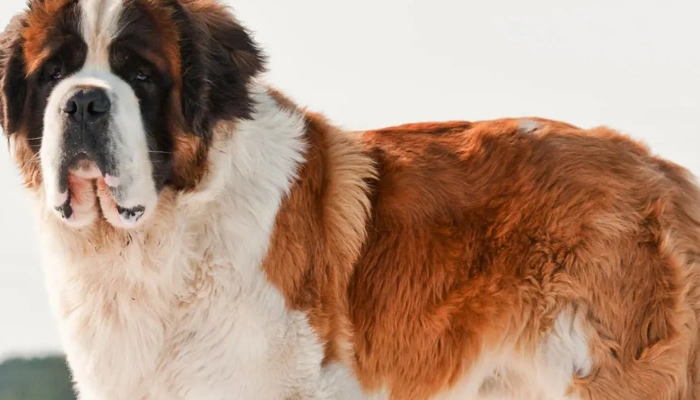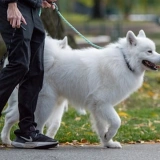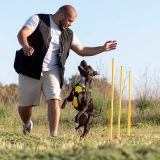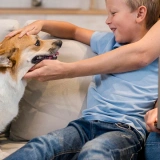St. Bernards are intelligent and eager to please but may be a bit stubborn. Early socialization and training are essential to manage their size and strength, especially during adolescence. They thrive on gentle, positive reinforcement and consistent leadership. Their temperament makes them excellent therapy or family dogs in the right environment.
Their thick coat can be short or long and needs weekly brushing to manage shedding and tangles. They're moderate droolers and may require regular face wiping. Due to their large size, they're prone to health issues like hip and elbow dysplasia, bloat, and heart conditions. Responsible breeding, a proper diet, and joint care are crucial to their longevity.







